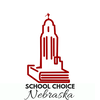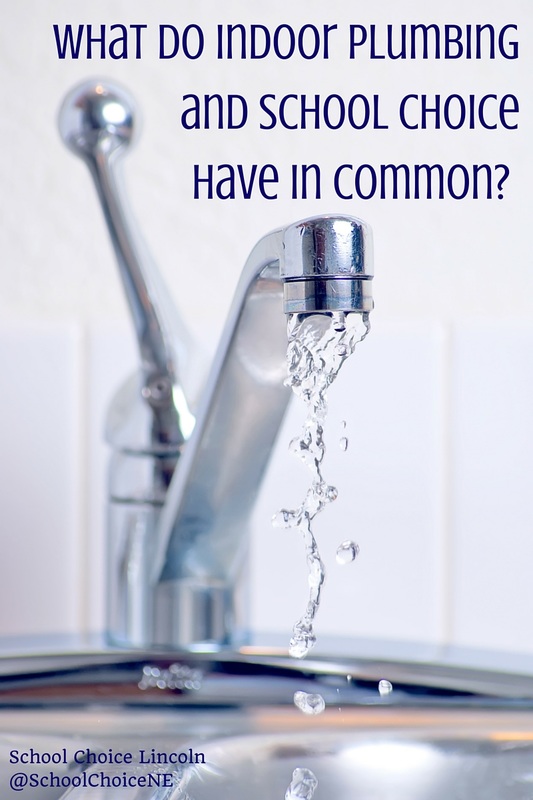|
Nebraska School Choice Week (January 24-30) gave Nebraskans a great opportunity to discuss K-12 public education options currently available, including celebrating the great things we are currently doing, and identifying areas that need obvious improvements. School choice advocates got a chance to highlight alternative education options to address those needed improvements in discussions about tax-credit scholarships, charter schools, educational savings accounts, and online learning.
Like any public forum, there were dissenting opinions about school choice, and those arguments were strongly voiced during Nebraska School Choice Week in regards to expanding educational opportunities for parents and kids through options outside the control of the traditional public school administrative model. In fact, the Nebraska teacher’s union spent thousands of dollars in persuasion polling and press conferences during Nebraska School Choice Week to ensure they would not lose influence with voters in Nebraska. Despite the opposition's rhetoric, reasonable, forward-thinking parents want control and choice over their children’s educations, and they believe their zip code residence and their income level should not dictate those choices. As communities from New Orleans to Milwaukee to Miami have learned, educational choice is an immediate solution for parents who have children who are trapped in underperforming traditional public schools. In fact, 69% of Americans support school choice overall, according to a new national poll from the American Federation for Children, and 76% support public charter schools, with only 20% opposing them. And like so many things in our American dream, having the opportunity to choose from options that meet the diverse needs of a diverse population makes parents and students more committed towards educational outcomes, more engaged to ensure their success, and more willing to change from the status quo to fit their unique family needs better. Indoor Plumbing: Change Can Be Difficult, But the Rewards Are Great Let’s look at a simple analogy. Indoor plumbing was a big change for people all across the country. People had been living without indoor plumbing for millennia; they knew they could get along just fine without it. People also had vested interests in the way things had always been done. If there had been a privy builders union, you can bet they would have fought indoor plumbing tooth-and-nail. They would probably have told people indoor plumbing was dangerous and would result in nasty sewer backups (which actually does happen sometimes). But people here in Nebraska visited their relatives in Philadelphia or Chicago and came home thinking, “That indoor plumbing is pretty great. My sister gets hot running water right in her kitchen. My life would be easier and more efficient if I had that.” So they adopted indoor plumbing, and the privy builders learned that with advances in technology come even more job opportunities than they previously had. Of course, the courthouse in Frontier County, NE, was the last courthouse in the nation to get indoor plumbing, but if you visit that courthouse today, the drinking fountain works just fine. Indoor plumbing is a nice luxury, but quality education shouldn’t been seen as a luxury, especially when children in the rest of the country already have the immense opportunities that come with school choice. By putting up roadblocks to school choice in Nebraska, we are preventing growth and innovation in our state. I’m not willing to move into a house without indoor plumbing, and likewise, there are many people who are not willing to move to a state without school choice. Not when they have enjoyed it for a quarter of a century back home. Learn the Facts About School Choice Opponents to school choice are willing distort or avoid the facts in order to keep educational options out of Nebraska. They’ll tell you that charter schools are private schools. They’ll say that wealthy donors are trying to take over the school system. They’ll say school choice advocates have hidden agendas. Just so you know, here’s the agenda of school choice supporters (we’ve never been shy about it):
If you’re new to the subject of school choice, or have only heard one side of the story about it, check out the facts. Talk to someone who came from a state that had school choice. There are 25 years of school choice examples in the U.S – some good, some bad, and some great which is why it is still around. In the last 10 years, 43 states have pin-pointed best practices in their school choice legislative bill writing. The net effect is that school choice is expanding faster in states that already have it than legislative sessions can give yes votes to on Capitol floors. And even though we are a late-adopter, Nebraska is in a position to cherry-pick those best practices to write legislation for our state that is the best for parents, students, teachers and taxpayers. There are more than a million children in this country on waiting lists for public charter schools. Supply-and-demand economics is shifting public education into a free market competitive arena where the best choices thrive. The days of the one-size-fits-all traditional bureaucratic public school monopolies cannot keep up with the innovation and academic outcomes of school choice options. But we will never know until we try, Nebraska. And hopefully we don’t fall too far behind before we do; we can still catch up.
0 Comments
Your comment will be posted after it is approved.
Leave a Reply. |
|


 RSS Feed
RSS Feed